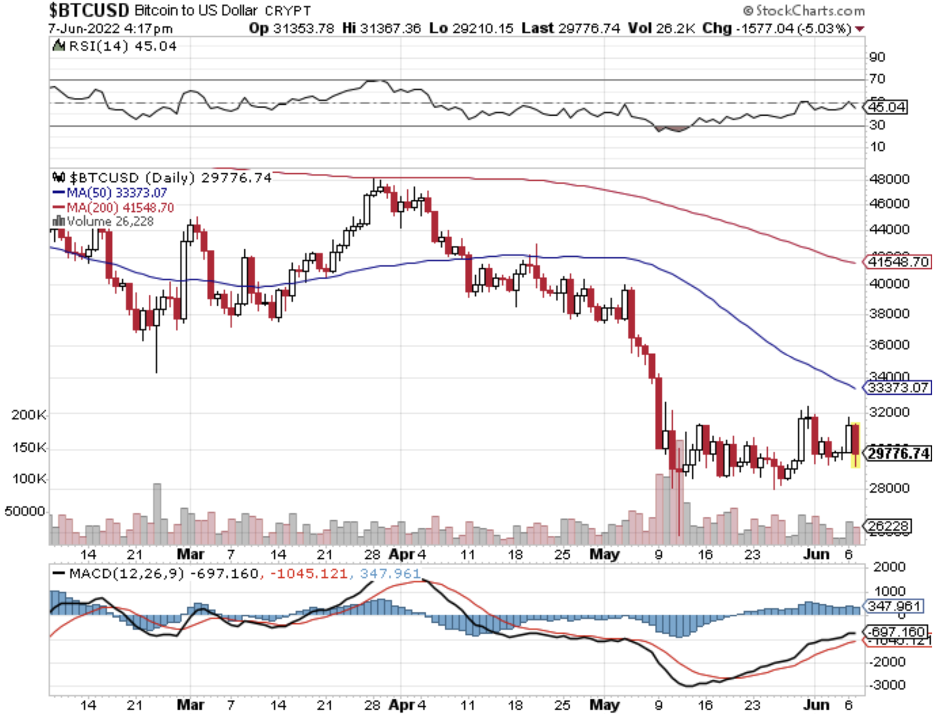Oversight is Here
Responsible Financial Innovation Act – that’s what they will call it.
Yeh, the Federal Government has seen enough of the sloppiness that masquerades as crypto infrastructure and they pulled the rug.
As many might know, there has been nothing responsible or innovative about fiscal matters at all lately with the Fed asleep at the wheel with hyperinflation.
Many of the talking heads like Transportation Secretary Pete Buttigieg continue to argue that more government spending doesn’t result in higher inflation.
So just imagine right now that crypto is about to go through the twilight zone of federal regulation where I am sure regulators will argue that layers upon layers of regulation are required to keep this asset safe and secure.
In short, this means higher costs and not just a few pennies.
Let’s get more into the weeds of the proposed crypto bill.
The bill is cornered by oversight from the Commodity Futures Trading Commission (CFTC).
The CFTC is overseen by The Division of Market Oversight (DMO) and I could easily see both of these regulators slapping two sets of their own unique fees for any crypto trade or account.
Next, it also gives “needed legal clarity” in how to handle customer holdings after the recent furor over customers’ tokens getting roped in with an exchange’s assets in the event the company goes bankrupt.
The administration has signaled it wants better custody arrangements in any crypto bills moving through Congress.
This won’t be free either.
Some sort of mechanism or escrow account will need to exist to make sure investors (in an uninsured asset class) doesn’t get dragged into a bankruptcy claim if an unregulated exchange goes under.
Also inserted, is language from a bill last year from Rep. Patrick Henry and others that sought to clarify the meaning of a crypto broker, especially hoping to protect wallet providers, software developers, and others from being snagged by certain tax reporting requirements.
This is the first step that will ultimately give regulatory access to the Financial Industry Regulatory Authority (FINRA) who forces all brokers to pass a series of tests to become licensed brokers.
It usually costs a few thousand dollars to go through these courses and these licenses must be issued by an official bank member and not some random LLC in the Cayman Islands.
There is specific language regarding oversight fees that would incur if the CFTC would monitor this asset class.
It’s anybody’s guess how exploitive these fees will be.
Lastly, comes the “innovation” part of the bill which to the Federal Government specifically means disclosure innovation.
Certain disclosures will be required to the SEC from companies raising funds through digital asset sales.
The approach also specifically gives SEC their chunk of change and a path to levy an SEC fee on the crypto industry.
As one might surmise, in totality, this will cost a lot and these proposals will need to meander through the congressional committees before it coagulates in its final form.
I will honestly say that the aggregation of debacles lately in crypto has shone a bright light on the gaps in the crypto industry.
They didn’t help themselves when they really needed to.
Crypto needs time the most, the time to develop itself as they see fit without 3rd party oversight. That chance has evaporated.
Just as disappointing, crypto has not participated in this latest bear market rally with high growth tech stocks and is down 5% this morning.
Disappointing all around for the crypto industry and this doesn’t help that we are staring at a crypto winter if crypto prices start to decouple with tech stocks.
There is a legitimate chance they might be left out of the recovery stage.


